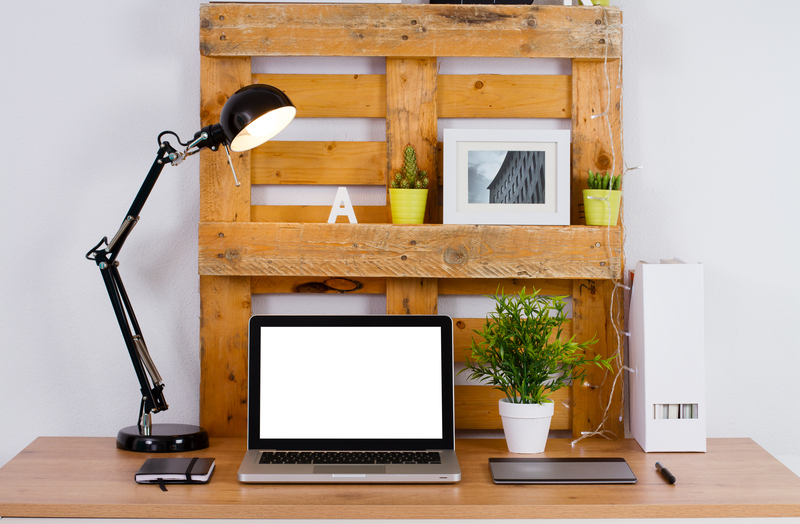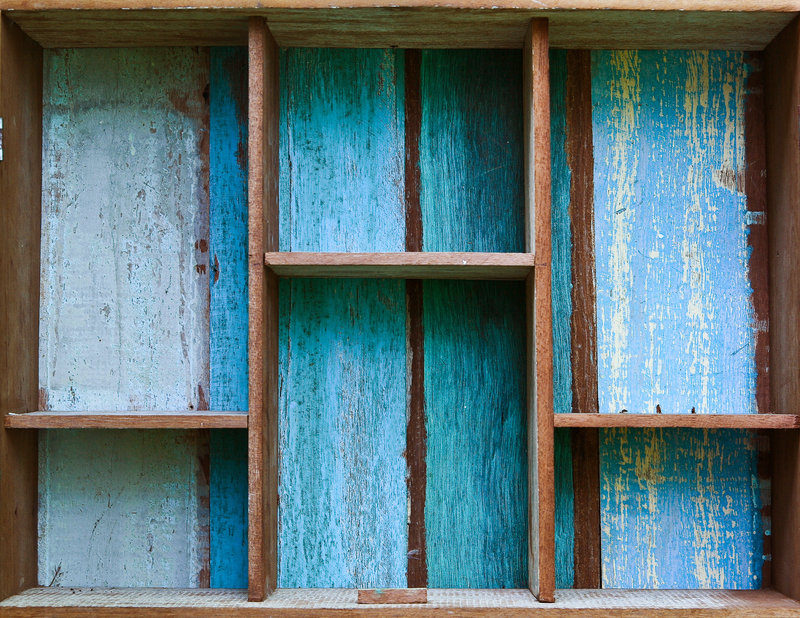Clear the Chaos to Release Stress Through De-cluttering
Clutter. Just the word itself can cause a little spike in anxiety. In our busy modern lives, it's all too easy for belongings and stuff to pile up, turning peaceful homes and productive workplaces into sources of stress and discomfort. But what if you could turn the tide? Imagine every room as a relaxing oasis, your desk as a powerhouse for inspiration, and de-cluttering your life as a path to genuine relief from stress. Let's explore how you can clear the chaos to release stress through the transformative power of de-cluttering.
Understanding the Link Between Clutter and Stress
Numerous studies have shown a clear connection between disorganization and increased stress levels. In environments overwhelmed with clutter, our brains receive too many signals at once, leading to sensory overload. This can spike cortisol, the so-called "stress hormone," leaving us feeling frazzled, anxious, and unable to focus.
- Visual clutter interrupts your ability to focus and process information.
- Physical disorder is often linked to feelings of guilt and embarrassment.
- Clutter can reduce productivity and lower mood.
- It can even negatively impact your relationships.
By making an intentional effort to clear the chaos from your environment, you not only create a more visually pleasing space but also promote better mental health, greater relaxation, and even increased physical well-being.

How De-cluttering Helps Release Stress
De-cluttering isn't just about tidying up; it's a holistic approach to wellness and inner peace. Here's how letting go of excess can lead to lower stress:
- Promotes Mindfulness: The process of sorting, organizing, and letting go forces you to focus on the present moment, a key component in stress reduction.
- Creates Calm Spaces: Open, clean spaces naturally encourage relaxation and clarity.
- Encourages Productivity: A clear space leads to a clear mind, helping you accomplish tasks more efficiently.
- Boosts Emotional Health: Taking control of your environment provides a sense of accomplishment and empowerment.
De-cluttering your surroundings removes negative triggers, giving you more time, energy, and mental space to focus on what truly matters. When you release the physical clutter, you also release the emotional weight and tension that comes with it.
Recognizing the Signs: Is Clutter Affecting Your Stress?
It's not always obvious when clutter begins to impact your well-being. Here are several key signs that it may be time to clear the chaos in your life:
- Difficulty concentrating or feeling easily distracted at home or work.
- Constantly misplacing important items such as keys or documents.
- Feeling embarrassed to invite guests over due to your space's appearance.
- Procrastinating on tidying tasks, leading to a vicious cycle of mess.
- Experiencing tension or arguments with family members over messiness.
If you identify with any of these issues, de-cluttering to reduce stress can be an empowering and effective solution.
Getting Started: The First Steps to De-clutter and Release Stress
You might feel overwhelmed at the prospect of transforming your space, but don't let that stop you. Here's a comprehensive guide to begin your journey:
Step 1: Define Your 'Why'
Before diving in, reflect on your motivation to de-clutter. Is it to release stress, create a more welcoming home, or boost your productivity? Jot this down and keep it as inspiration when you hit rough patches.
Step 2: Start Small and Prioritize
Don't try to tackle your entire house or workspace at once. Break it down--room by room, or drawer by drawer. Setting manageable goals helps ensure success and builds momentum.
Step 3: Gather Your Supplies
- Boxes or bins (for keep, donate, and discard piles)
- Trash bags
- Cleaning supplies (wipes, sprays, cloths)
Step 4: Use a Proven Method
Popular systems like the KonMari Method ("Does this spark joy?") or the Four-Box technique (Keep, Donate, Toss, Relocate) provide a framework for decision-making. Choose the method that resonates with you and stick with it for consistency.
Room-by-Room: Tailored Solutions for Maximum Stress Relief
The Bedroom: Create a Sanctuary
- Remove clothes you no longer wear; donate or discard items that don't fit, have stains, or haven't been used in a year.
- Clear nightstands by removing excess books, half-used beauty products, and chargers piling up.
- Store seasonal items in bins under the bed to maximize space.
- Keep only restful items in your sleeping area; try to avoid work materials or exercise equipment in your bedroom.
The result? A calm, cocoon-like environment that promotes relaxation and sleep--a key factor in stress reduction.
The Kitchen: Streamline and Simplify
- Sort through pantries; discard expired foods and donate extras.
- Countertops should be as clear as possible; store small appliances you rarely use.
- Organize utensils and cookware by frequency of use.
A tidy kitchen means faster meal prep, better nutrition, and less daily frustration.
The Living Room: Reclaim Your Main Space
- Sort through piles of mail and magazines--recycle what you don't need.
- Store remotes, chargers, and accessories in baskets or decorative boxes.
- Donate or discard old decor and knick-knacks that simply gather dust.
With less visual noise, your living room becomes a place to truly unwind and connect with loved ones.
The Office or Workspace: Boost Focus
- Sort papers and documents; digitize what you can, shred what you don't need.
- Organize your desk with trays, folders, and labeled containers.
- Remove unnecessary office supplies and keep only daily essentials within arm's reach.
An organized workspace equals less distraction, higher productivity, and much less stress.
Advanced Strategies for Maintaining a Clutter-Free Life
Once you've achieved a more orderly environment, the real challenge begins: maintenance. Here's how to make de-cluttering and stress relief a consistent lifestyle:
Adopt Mindful Purchasing Habits
- Before buying anything new, ask: "Do I really need this?" or "Does this add value/stress relief to my life?"
- Try the "one in, one out" rule--every new item means removing one existing item.
Implement the 5-Minute Tidy Up
Dedicate just five minutes at the end of each day to put things away and wipe down surfaces. Small daily efforts go a long way to prevent mess from building up.
Review and Refresh Regularly
- Schedule monthly or seasonal reviews to reassess items you've acquired and let go of what you no longer need.
- Don't be afraid to adjust storage or systems if something stops working for you.
Involve Others
If you live with family or roommates, encourage everyone to participate in the process. Teamwork ensures mutual respect for the space and reinforces positive habits.
The Psychological Impact: How Clearing Clutter Sets You Free
De-cluttering is more than a physical act--it's a mental and emotional reset. The process forces you to confront what you truly value, what's holding you back, and what's just taking up space. By letting go of possessions you don't need, you can lift burdens you didn't even realize you carried.
- Freedom from the past: Letting go of outdated or sentimental items frees emotional energy for new experiences.
- Clarity and focus: Less clutter means fewer distractions, making it easier to prioritize what matters.
- Sense of control: Taking charge of your surroundings counters stress by strengthening your sense of agency.
Many people who clear the chaos in their environments report improved sleep, stronger relationships, and greater joy in daily life. The ripple effects of de-cluttering to reduce stress travel much farther than just neat shelves and shiny floors--they touch every aspect of your well-being.
De-cluttering in the Digital Age: Don't Forget Virtual Chaos
Physical spaces aren't the only source of clutter in our lives. Digital disarray--unread emails, unorganized files, and non-stop notifications--can be just as overwhelming. Here's how to release stress by de-cluttering your digital world:
- Unsubscribe from newsletters you no longer read.
- Organize your desktop and files into clearly labeled folders.
- Delete unused apps and clear old downloads from your devices.
- Schedule regular screen-free time to let your mind rest.

When to Seek Help: Professional Organizers and Other Resources
Sometimes, clutter can feel insurmountable--especially if tied to emotional trauma or prolonged habits. There's no shame in seeking extra support. Professional organizers specialize in helping others clear chaos and release stress through customized strategies and hands-on guidance.
- Therapists can help tackle the mental blockages or anxieties underlying chronic clutter.
- Apps and books offer actionable tips, checklists, and motivation for sticking to new habits.
- Friends and family can provide moral support or a second set of hands.
If the clutter in your life contributes to ongoing or serious anxiety, it's okay to reach out for help. With the right strategies and support, the chaos can be conquered.
Conclusion: Create Lasting Peace by Clearing the Chaos
Every step you take to de-clutter your home, office, or digital world is a bold step toward lower stress, higher clarity, and a truly peaceful way of living. While every journey is unique, the destination is the same: more freedom, joy, and energy for what matters most.
Start small. Stay consistent. Relish the freedom. As you clear the chaos, you'll discover more space not just on your shelves or in your inbox--but in your mind and heart. Take the first step to release stress and rediscover life beyond the mess.